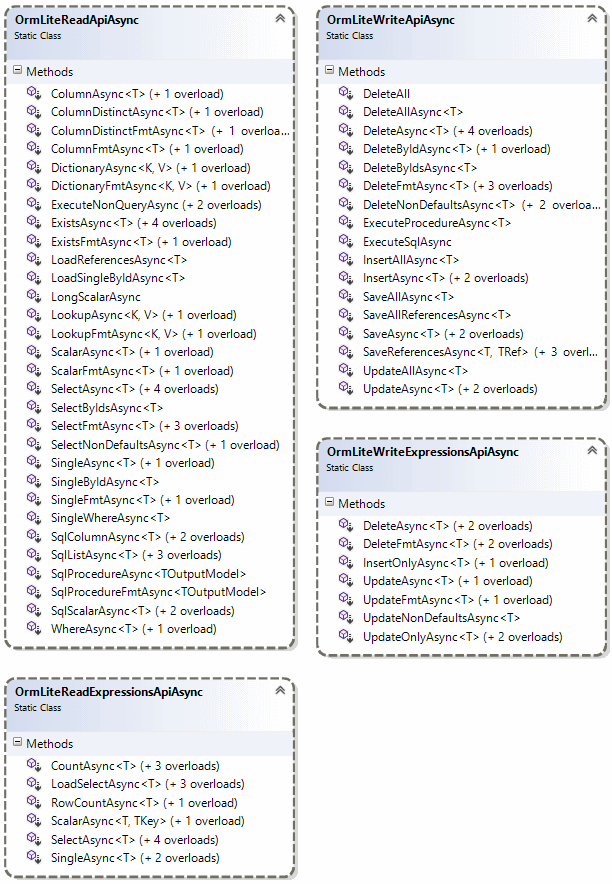A quick overview of Async API's can be seen in the class diagram below:

Essentially most of OrmLite public API's now have async equivalents of the same name and an additional conventional *Async suffix.
The Async API's also take an optional CancellationToken making converting sync code trivial, where you just need to
add the Async suffix and await keyword, as can be seen in the
Customer Orders UseCase upgrade to Async diff
, e.g:
Sync:
db.Insert(new Employee { Id = 1, Name = "Employee 1" });
db.Save(product1, product2);
var customer = db.Single<Customer>(new { customer.Email });
Async:
await db.InsertAsync(new Employee { Id = 1, Name = "Employee 1" });
await db.SaveAsync(product1, product2);
var customer = await db.SingleAsync<Customer>(new { customer.Email });
INFO
Effectively the only Data Access API's that doesn't have async equivalents are *Lazy APIs yielding a lazy
sequence (incompatible with async) as well as Schema DDL API's which are typically not used at runtime.
For a quick preview of many of the new Async API's in action, checkout ApiSqlServerTestsAsync.cs.
Async RDBMS Providers
Currently, only a limited number of RDBMS providers offer async API's, which at this time are only:
We've also added a
.NET 4.7.2 build for Sqlite
as it's a common use-case to swapout to use Sqlite's in-memory provider for faster tests.
But as Sqlite doesn't provide async API's under-the-hood we fallback to pseudo async support where we just wrap its synchronous responses in Task results.